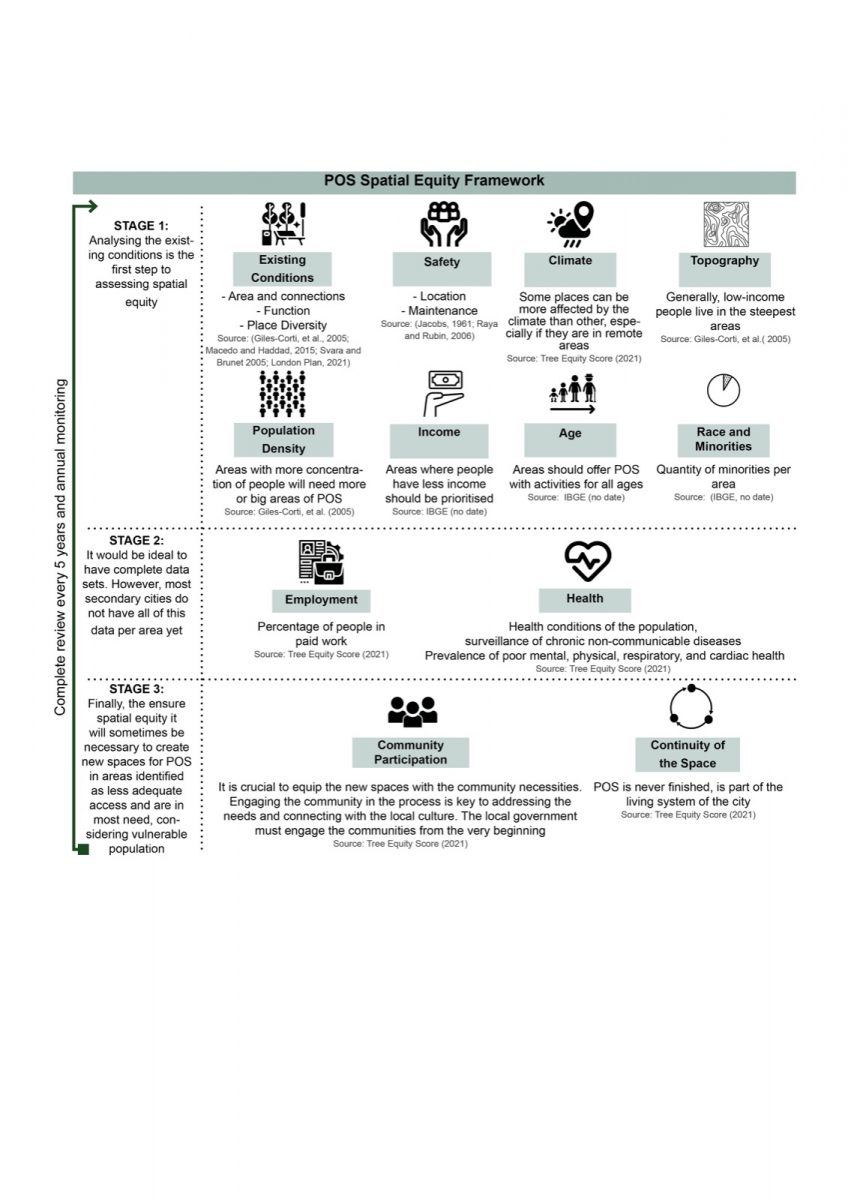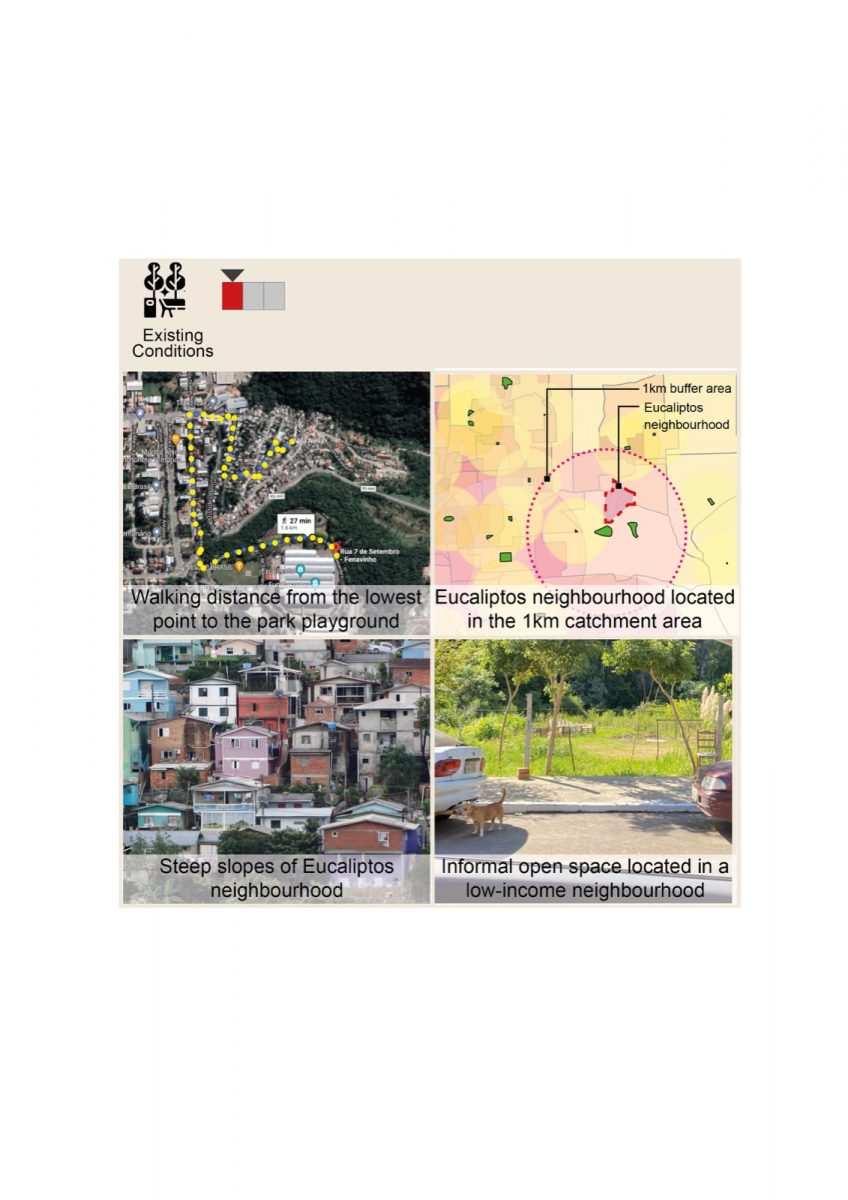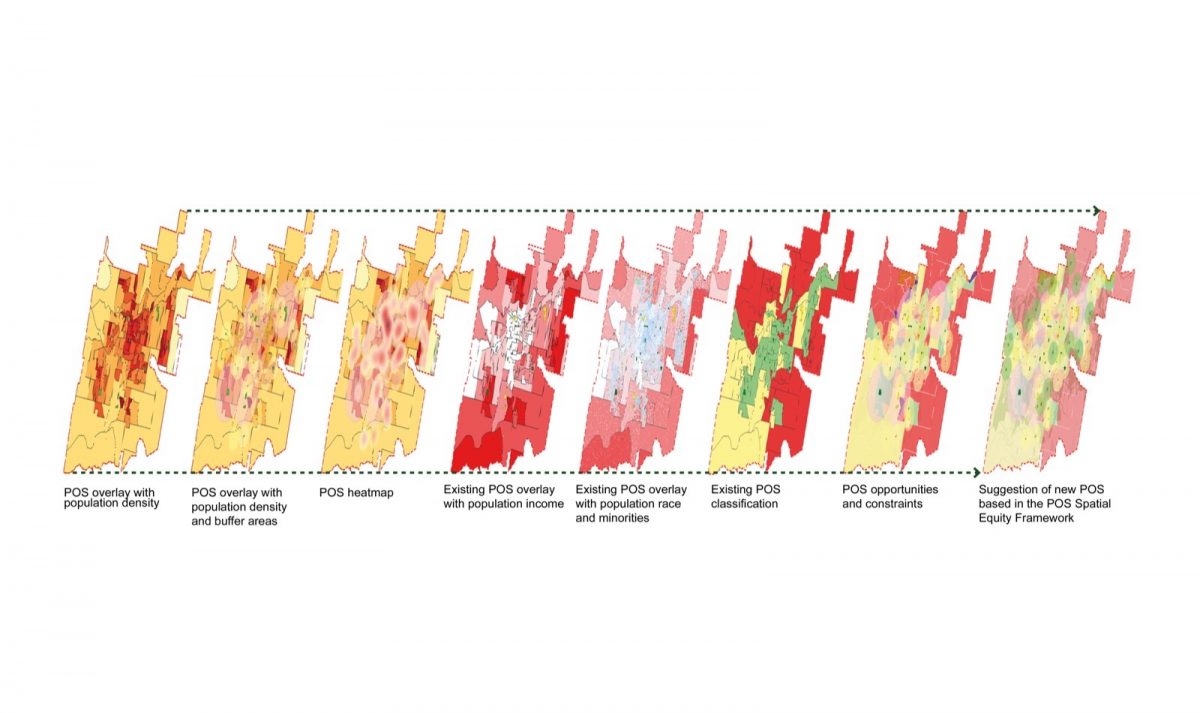Public Open Spaces: Spatial equity frameworks for Brazilian secondary cities
As more people live in cities, the gap between rich and poor in society also increases, and there is a need to create strategies to minimise this inequity. All cities present gaps in society, however, the Global South is suffering the most. Secondary cities are suffering from urbanisation and have fewer resources than capital cities. Access to public open space can add social, environmental, and economic value, and increase people’s and communities’ sense of belonging, social capital, mental health, and more. This study aims to create a spatial equity framework for public open spaces in secondary cities in Brazil, to be used as a tool by planners and governments. This research used mixed methods, with quantitative and qualitative approaches to data gathering and analysis. The framework’s creation was based on the literature review, after which a few case studies were analysed to refine the framework, and finally, it was applied to a Brazilian secondary city case study, Bento Gonçalves, in order to test and validate the tool. The results are presented through maps that illustrate the main gaps and areas that most need public open space. The analysis of existing spaces also guides the local needs with suggestions, such as informal spaces and the necessity to engage the local community to minimise green gentrification and have more effective results. On the other hand, the study points to the challenges of creating POS, such as difficult access because of very steep terrains. Finally, the POS Spatial Equity Frameworks proved to be an useful tool for understanding spatial equity regarding public open space.












